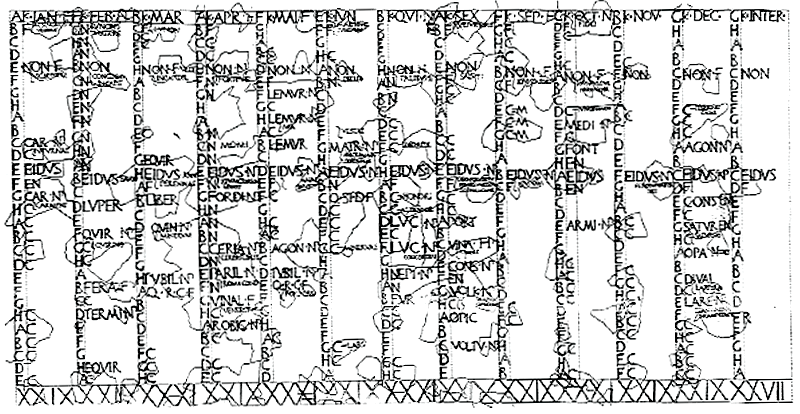Topic Tuesday #85 2014/03/04 - "Text Books"
I stumbled on an article in Salon written by Katie Halper (whom I about to cite extensively) about some of the skewed things that are making it into text books around the United States. You may be aware of the kerfuffles in Texas over their routine revisioning of their text books (a 7 year refresh). Many things were threatened to be taken out of History books, Science was in great danger of being skewed by anti-science fundamentalists. Thankfully, that has been largely taken care of by the addition of a committee that consists of educators and experts, whose opinions are more valid than the lay person when it comes to proper education.
There is another issue that our nation faces. Many disagree with how the public education system is structured, or are in areas where the local school board has made a right mess of things. Because of this there are alternatives to public education; Private schools, Charter schools, Religious Parochial Schools, Montessori, and homeschooling to name the usual suspects. Here we have a divergence in the materials utilized by these alternatives to what I will otherwise refer to as "mainstream" public education standards. Montessori has specific methods and practices. Homeschooling can be done with mainstream tools sanctioned by the areas school board, but can be supplemented and subverted as long as regular testing scores come back positive. Some of these supplemental or alternatives to the mainstream materials are what is preferred by some of the private, charter and religiously affiliated institutions. Here is where we get into the danger zone.
As this article( http://www.salon.com/2014/03/04/7_absurd_things_americas_kids_are_learning_thanks_to_conservatives_partner/) on Salon points out, there are 3 big players in the religiously focused educational material business. A Beka Book, Bob Jones University Publishing, and ACE (Accelerated Christian Education). A Beka Book has the largest distribution (9,000+ schools) so is an obvious target for more fact finding.
Let's run down what the author of the article found to be the 7 sins of this publisher, so far.
Mathematics:
The publishing company boasts that, “Unlike the ‘modern math’ theorists, who believe that mathematics is a creation of man and thus arbitrary and relative, A Beka Book texts teach that the laws of mathematics are a creation of God and thus absolute.” “...traditional mathematics texts that are not burdened with modern theories such as set theory.“
Critical Thinking:
Like so many of Beka’s critical thinking tools, this one comes in the form of a mnemonic device: “Use the DISCERN method,” Beka instructs, “to determine whether abortion is biblical.” The method allows students to make an informed godly choice around any issue, not just abortion. Once they’ve figured out whether something is biblical or not, they can engage in it and praise it, or refrain from doing it and condemn it. Here’s how DISCERN works:
Determine your choices
Inquire of God through prayer
Search the scriptures
Consider godly counsel.
Eliminate worldly thinking.
Recognize God’s leading.
Never compromise the truth.
To see what REAL critical thinking is... I recommend a dictionary. Or check this wiki out..http://en.wikipedia.org/wiki/Critical_thinking
Science:
"A non-Christian world view is any one that is based on the belief that there is something more reliable than the bible. The belief may come from church traditions scientific conclusions, or various theories. The most important teachings to be found in a Christian World View are… God made the world and everything in it; The world has fallen into a tragic state because of sin; and God is working to redeem this world to Himself.”
Science that contradicts these notions, the people at A Beka Book explain, is just plain wrong. “These three teachings should influence your interpretation of any facts you study,” they note. “And if you are serious about being a Christian, they must color your view of scientific thinking.”
Also crucial is the instruction not to stray from God’s path by using science to help people. “Others may be curious about the world of nature simply because they want to improve the lives of other humans. Although Christians should also be interested in that, they should mainly be interested in loving God through the study of nature.”
Guns:
“The founding fathers… understood that unarmed citizens would not be able to stand against a tyrannical government.” Gun control, according to this text, is simply a “gateway to tyranny.” The book’s exhaustive analysis of world history backs up this brilliant assertion: “A study of Hitler’s, Stalin’s and Mao’s ideas on disarming their citizens shows… they were well aware of the concept that control thrives when people are unarmed.”
As an added bonus, guns are also a way for America to fight against creeping… globalism: “Armed citizens could also play a major role in thwarting Globalism, the idea to bring the world together under ‘one global government.’ making the constitution null and void.”
The Death Penalty
'America: Land I Love In Christian Perspective' laments that the death penalty, and thus the sanctity of life, have become less hip. Back in the good old days, “because people believed in the sanctity of human life, most states practiced capital punishment.” Yeah... That makes sense...
Sexually Transmitted Disease
Beka’s 'Health In Christian Perspective' text also teaches that sexually transmitted diseases are caused by sacrilegious behavior: “Disobedience to God’s Word in the area of sexual purity can also lead to disease.” “Some infections, known as… STDs, are almost always spread by direct bodily contact during illicit sexual relations (sexual relations outside God’s institution of marriage). People who live according to God’s standards of waiting until marriage to have sexual relations are very unlikely to acquire venereal diseases.”
Worth noting that Sex Ed is not on the list of curriculum, but there is some wacky checklist...
encouraging students to check boxes for things like, “I wash my hands thoroughly on a regular basis” and “I obey biblical principles regarding morality, self-control, attitude, and anxiety.” “Unchecked boxes” the book warns, “identify conditions of risk.”
HomosexualityBeka’s 'Health In Christian Perspective' text also teaches that sexually transmitted diseases are caused by sacrilegious behavior: “Disobedience to God’s Word in the area of sexual purity can also lead to disease.” “Some infections, known as… STDs, are almost always spread by direct bodily contact during illicit sexual relations (sexual relations outside God’s institution of marriage). People who live according to God’s standards of waiting until marriage to have sexual relations are very unlikely to acquire venereal diseases.”
Worth noting that Sex Ed is not on the list of curriculum, but there is some wacky checklist...
encouraging students to check boxes for things like, “I wash my hands thoroughly on a regular basis” and “I obey biblical principles regarding morality, self-control, attitude, and anxiety.” “Unchecked boxes” the book warns, “identify conditions of risk.”
Homosexuality is listed under 'United States History—Heritage of Freedom In Christian Perspective’s' “Cultural Decay” section: “Traditional American family values have dramatically declined….When [the family] comes under attack, all of society suffers.” “The media has increasingly belittled fathers and husbands, portrayed blatant violence, and laughed at immorality. One result has been the increased acceptance of homosexuality.”
As you should be able to reason out, this is completely out of touch, and should in no way be taught to future generations. It is obviously divisive, and many of my Christian readers will likely chime in and concur with how despicable it is to taint children with a distorted version of reality, even a Christian reality, as I know most Christians do not subscribe to this way of thinking.
Beware what your children are learning. Ask questions. Take action. You, as a parent, are their only way to find a decent path to walk. The children are the future.




































